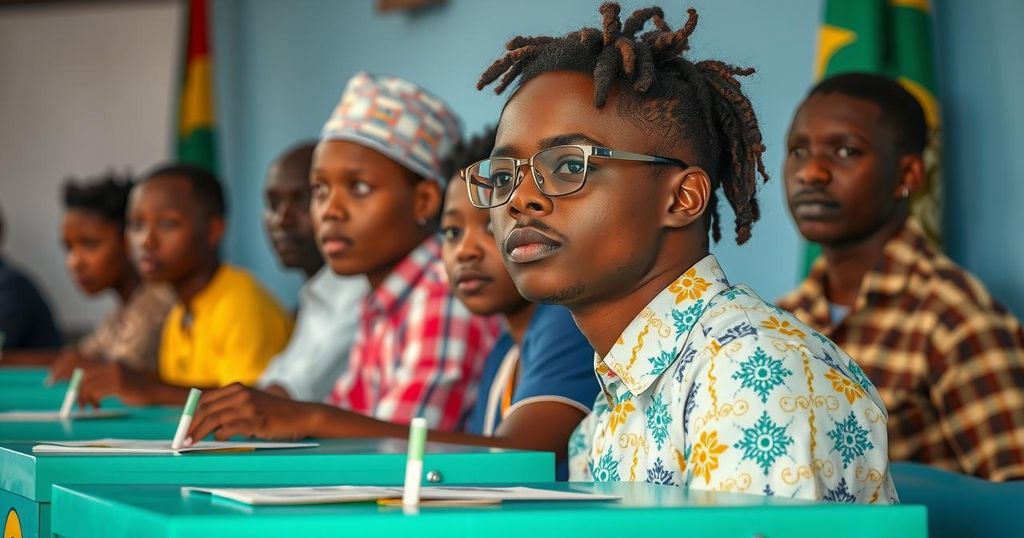Young Ghanaians see their presidential vote as a chance to escape economic hardship, but options for change are limited. The election is framed as a contest between Vice President Mahamudu Bawumia and former President John Mahama, as voters express frustration with the current government amid high inflation and allegations of electoral manipulation. Candidates seek to address pressing economic challenges while ensuring the electoral integrity remains intact.
ACCRA, Ghana — As young Ghanaians prepare to participate in their nation’s presidential election, many view their vote as a crucial opportunity to escape the pervasive hardships they face. Joseph Antwi, a first-time voter, articulates his frustrations with the current government, stating, “I want to vote to kick out the current government because they have not been kind to young people.” Despite his desire for change, he recognizes that the candidates’ offerings are limited, reflecting a common sentiment among voters in the country’s political landscape.
This year’s election sees a familiar trend, with the competition largely perceived as a contest between Vice President Mahamudu Bawumia, representing the ruling New Patriotic Party (NPP), and former President John Mahama of the National Democratic Congress (NDC). Though twelve candidates are vying for the presidency, the political narrative predominantly centers on these two figures, both of whom are making their final appeals to voters amid pressing economic challenges, including heightened inflation and public debt.
During their concluding rallies, Bawumia emphasized continuity, pledging to build upon the current administration’s policies to stabilize the economy. Conversely, Mahama articulated a vision to “reset our democracy, governance, economy, finances, agriculture, infrastructure, environment, health sector, and all that we hold dear as a people.” These contrasting messages illustrate the candidates’ strategies to address the voters’ deep-rooted concerns about the country’s economic hardships, fueled further by criticism of illegal gold mining, which exacerbates environmental damage and economic instability.
With the electorate largely focused on promises related to unemployment and living conditions, allegations of potential electoral manipulation have also emerged, casting a shadow over the electoral process. Despite claims by opposition parties regarding the ruling government’s possible influence over the vote, the Ghanaian electoral commission maintains its commitment to transparency and integrity in the election process. “We view transparency, responsiveness, and inclusiveness as critical to ensuring credible and fair processes,” asserted Jean Mensa, the head of the commission.
As the election approaches, excitement fills the air, yet a palpable sense of uncertainty looms amongst young voters who hope for a transformative outcome while grappling with the limitations of their choices.
The upcoming presidential elections in Ghana are drawing significant attention, particularly from the youth demographic largely impacted by economic challenges. Voter sentiment reveals a yearning for change amidst a backdrop of financial distress characterized by a rising cost of living, high public debt, and inflation. With major parties competing for the presidency, the options presented to young voters are primarily centered on two key candidates, highlighting their struggles to address the pressing issues affecting the population. The electoral context is also marked by concerns surrounding the integrity of the electoral process, suggesting a mix of hope and skepticism among voters about the potential for change.
The Ghanaian presidential elections represent a critical juncture for young Ghanaians eager to seek improvement in their economic conditions. While the rivalry between the leading candidates indicates a divided political landscape, widespread dissatisfaction with the current government underlines a desire for significant reforms. The outcome will not only reflect the aspirations of the youth but also test the resilience of Ghana’s democratic institutions amidst claims of electoral misconduct.
Original Source: apnews.com






